In the next six years, all diesel in India will have to be blended withbiofuel, like that found in Jatropha, a fruit which grows wild incentral India. The mandate has fueled a boom in rural farming of thefruit’s seeds, creating jobs and revenue for local Indians as they selltheir product to both public and private enterprises.
South Asia Archive
Free Newsletter
WorldFocus’ Daljit Dhaliwal interviews Dan Rather, who recentlyreturned from his eleventh trip to Afghanistan. Rather toured Kunarprovince, one of the violent eastern regions of the country near thePakistani border. He said, cautiously, that he did see someimprovements over previous visits. Rather says the military effort hasfocused on consolidating military operations while soft power diplomacyhas worked to empower local villagers.
Julia Mahlejd makes some thought-provoking observations about the difference between Afghan and American perceptions and understanding of just what constitutes corruption. This adds some substance to my abstract reflections on the relationship between corruption and legitimacy, as did Kari’s smart post on the Asia Society event featuring Ashraf Ghani she attended two weeks ago. My point wasn’t that corruption isn’t a problem in Afghanistan, nor that there is no connection between perceptions of corruption and perception of legitimacy. I just suspected that the Stateside policy discussion about corruption was lumping together a wide range of behaviors that in fact have […]
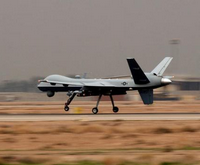
It has become an article of faith that American counterterrorism policy — especially as practiced in Afghanistan — is a failure, and that as a consequence a new approach is required. This perception served as a major justification for the escalation of the conflict in Afghanistan by the Obama administration, while the associated elevated sense of risk explains much of the resistance to closing the detention center in Guantanamo and holding terrorist trials in federal courts. Fortunately for the United States, the real story is quite different, as the American Security Project’s latest annual report (.pdf) on terrorism trends documents. […]
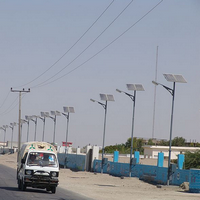
ISLAMABAD — It is often noted that the outcome of the war in Afghanistan may well determine who gains access to the oil and gas reserves of Central Asia. Pakistan, being a gateway to the mineral resource wealth of Central Asia, has been a key participant in the Afghan conflict. But what is generally less well-known is that Pakistan’s own oil and gas reserves have also attracted significant attention from large multinational energy corporations. According to government sources, Pakistan possesses reserves of 27 billion barrels of oil and 280 trillion cubic feet of gas. Yet most of that wealth remains […]
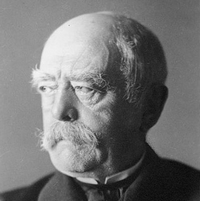
In discussing my proposal last week for a Sino-Indian Convention that would define 21st century spheres of influence in Central Asia, a colleague suggested that it was an idea that Otto von Bismarck would have been proud of. They didn’t mean it as a compliment. We think of Bismarck as a caricature of the old European warlord, peering through a monocled eye while croaking about decisions forged in “blood and iron.” Most of all, we see him as someone whose policies were designed for personal and imperial aggrandizement, not the betterment of the people. We distrust his approach to the […]
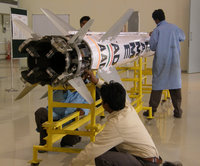
NEW DELHI — India has a long history of deferring critical choices for its armed forces, with defense buildups occurring always after military emergencies, rather than in anticipation of potential ones. The same is true today, when severe deficiencies in equipment and inventories have put archaic Indian acquisition norms in the spotlight, particularly in the aftermath of the Mumbai terror attacks last year. Prime Minister Manmohan Singh acknowledged problems with India’s defense acquisitions in a recent speech to the Combined Commanders’ Conference in New Delhi, saying, “I am aware that procedures for defense acquisitions and procurements are a matter of […]
Militants in Pakistan and Afghanistan have hacked U.S. military droneswith inexpensive software sold by a Russian company. The software,initially intended to enable users to download pirated music andvideos, has been used to see what the drones see as they go out for spymissions. The military is working to encrypt the drone’s feed so theproblem does not persist, but for now has to deal with the damagealready caused.
Paul Beckett, WSJ’s bureau chief in New Delhi speaks with Dr. AmartyaSen, Nobel laureate for economics at the Aspen India Institute’s 2009Ideas Conference. Sen says that India without question has madedevelopments in bringing justice to its citizens over the past twentyyears. However, he says there is no reason that India cannot movefaster toward reforms in areas such as child nutrition, medicine anderadicating poverty. Sen says the responsibility of the left in government is tochampion the underdog. br>
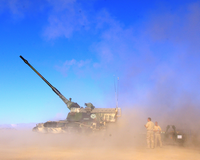
Two years after an unexpected surge in Dutch support for the Afghan war, the Netherlands has taken the first steps towards officially withdrawing from the NATO coalition in Afghanistan beginning in late 2010. A non-binding parliamentary decision in October rejecting an extension of the Dutch mission represents a striking break from the overall trend within NATO of deepening the alliance’s commitment to the eight-year-old war. The U.S. military is adding 30,000 troops to its current 70,000-strong force in Afghanistan, while the U.K., Italy and Poland — as well as non-NATO-members South Korea and Georgia — have also signaled their willingness […]
Afghan and American security forces work together daily in Afghanistan,however this relationship is not always easy. With a difficult languagebarrier, differing leadership styles and a lack of resources, the taskof building up a self sufficient Afghan Army proves difficult. WPR’sDavid Axe reports for Voice of America.
The Asia Society hosted a panel of Afghanistan experts on Tuesday in light of President Barack Obama’s recently announced new Afghanistan strategy. The panel — comprised of Peter Galbraith, former deputy special representative of the secretary-general of the United Nations to Afghanistan; Amin Tarzi, director of Middle East Studies at the Marine Corps University; and 2009 Afghan presidential candidate Ashraf Ghani — was quick to identify the difficult position Obama finds himself in, not just on the ground, but over the airwaves. As Ghani pointed out, in a globalized world, there is no such thing as giving two different speeches […]
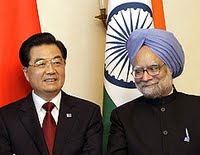
While Afghanistan has often been touted as the crucible for the regeneration of the Western alliance, it also offers another opportunity for the United States: a means to promote a stabilizing modus vivendi between India and China. In his recent WPR Briefing on China’s stake in containing Pakistani militants, Michael Kugelman observed, “Pakistan’s instability threatens the security of China’s citizens, its government and its energy imports,” particularly when it comes to the “combustible province of Baluchistan.” He notes, “Whenever China has demanded something of Islamabad, the latter has often complied.” And in surveying the Indian strategic view of Afghanistan, Dan […]
Bangladeshis are bearing the burden of a climate change problem thatthey’ve done little to create. As leading nations converge at theclimate change conference in Copenhagen, Bangladesh continues to face agrim fate should global warming continue at an accelerated pace. Bymid-century, one-fifth of the nation could be under water, renderingabout 20 million people homeless.
Gen. Stanley McChrystal speaks with Charlie Rose about what”winning” in Afghanistan would mean. McChrystal’s assessment ofAfghanistan has been at the core of the new Afghanistan strategy. Hesays that the United States’ overall goal should be to give the Afghanpeople a reason to believe that they can live in peace. In a conflictcolored by political and cultural complexities just as much as combat,McChrystal says the Afghan people will ultimately determine who has wonthe war.
“Corruption is the great leveler,” 2009 Afghan presidential candidate Ashraf Ghani said at an Asia Society event on Tuesday. “We have perfect national unity [on that subject], when we are divided on other things.” Corruption is not unique to Afghanistan, or other developing nations. However, ending large-scale corruption there will be one of the pillars needed to form a stable nation, according to experts at an Asia Society event. Ghani, a former Afghan finance minister, broke down the corruption issue in alarming detail, exposing the shortcomings of both the international and Afghan communities. For a country that recently acknowledged that […]
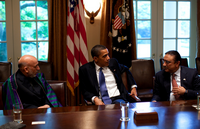
Counterinsurgency, commonly referred to by its military acronym, “COIN,” essentially boils down to armed nation-building — a deliberate process of empowering people and weakening guerrillas until a state-friendly balance emerges. By contrast, counterterrorism seeks the tactical annihilation of the enemy. President Barack Obama’s new Afghanistan and Pakistan strategy is an effort to do both, promising to dismantle and disrupt al-Qaida while leaving the expensive and time-consuming job of definitively defeating it to Islamabad and Kabul. Call it COIN-lite. Can such an approach work? For now, yes. But if we extend the time horizon to 5-10 years from now, the outlook […]
